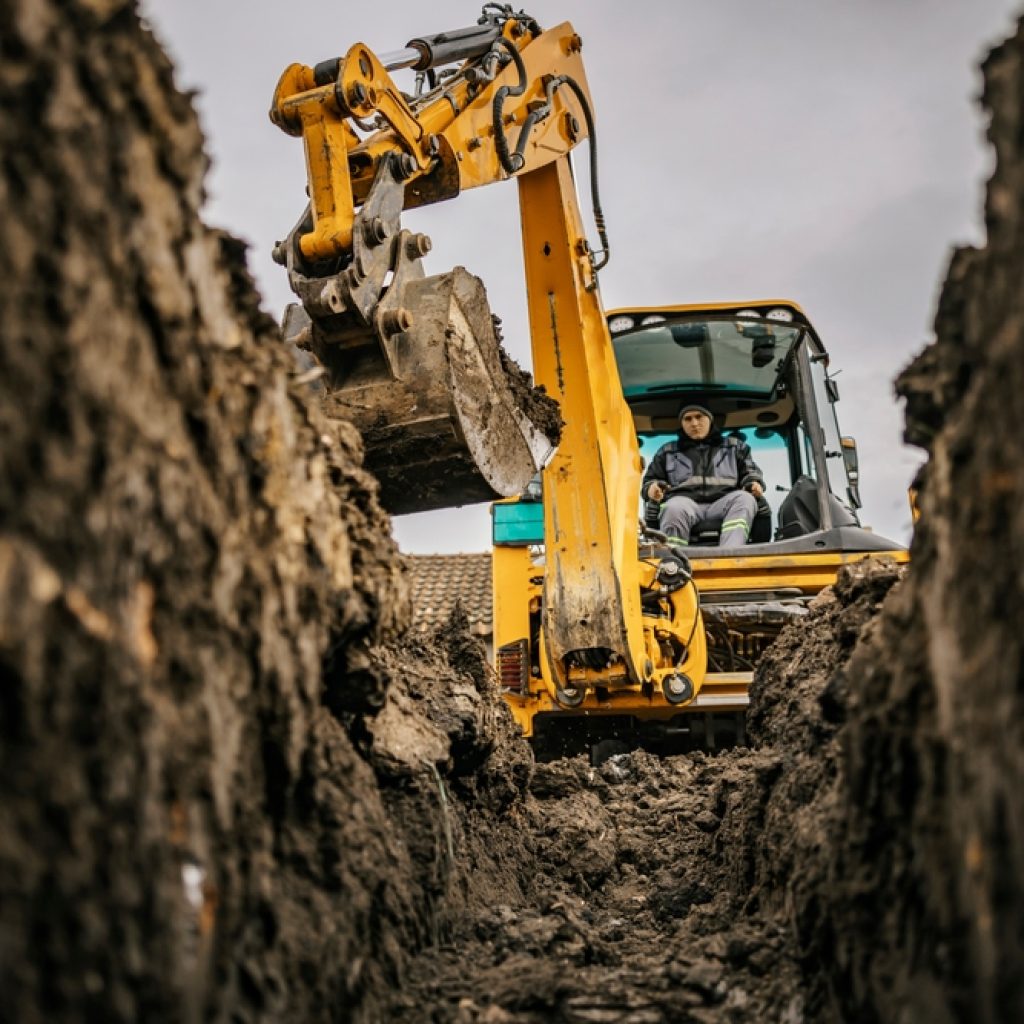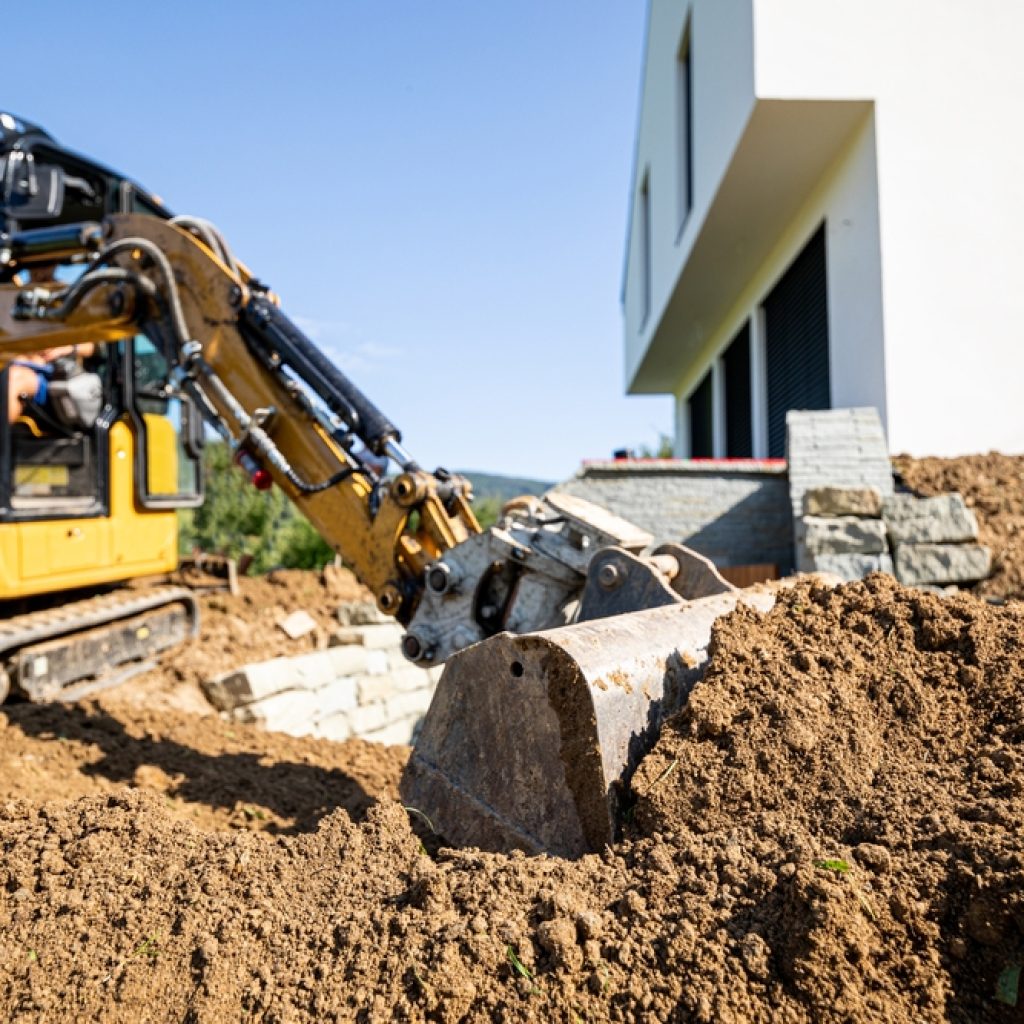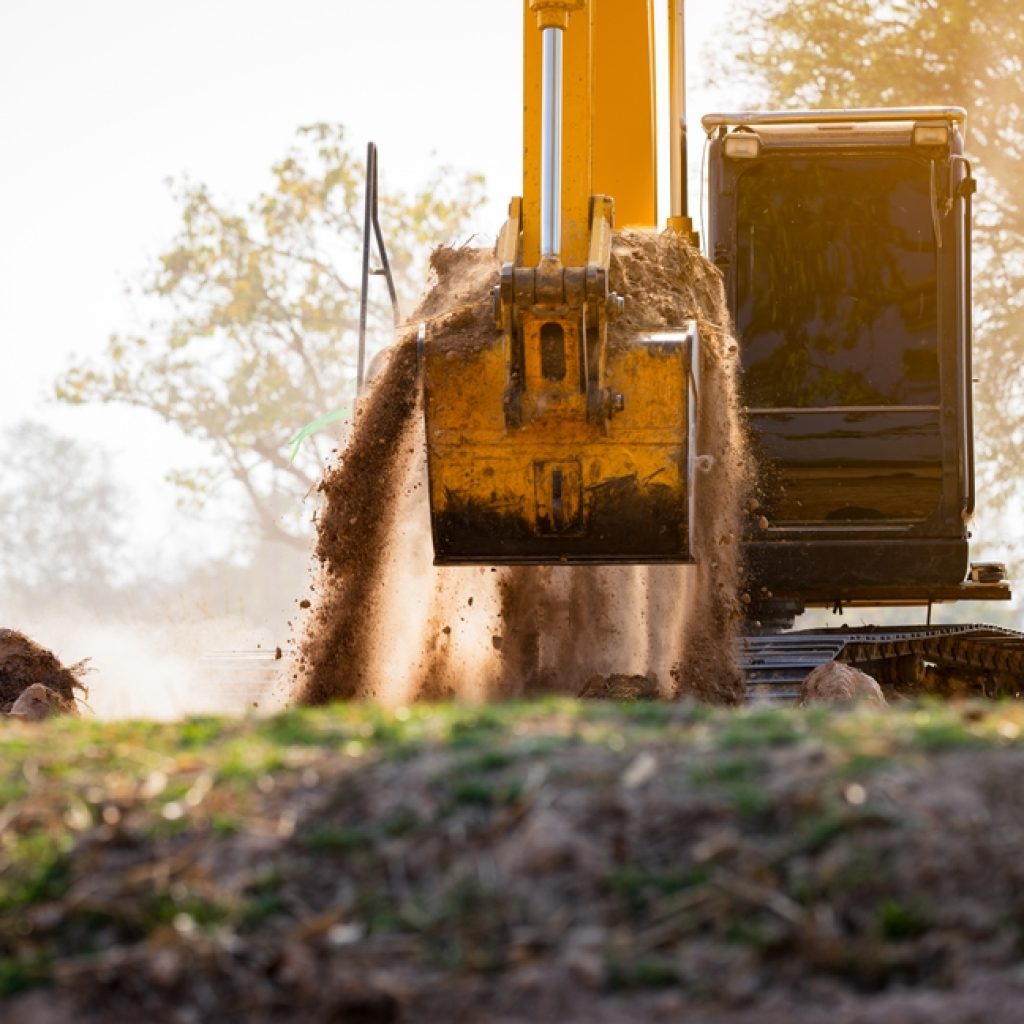
Excavation is an important element of many construction, demolition and landscaping projects, both DIY and professional. It involves moving and removing soil, rocks and other materials from the ground. While it may sound simple, excavation work comes with its share of challenges and hazards. Anyone who has worked in the construction industry knows that accidents like collapses can happen quickly, making it hard to escape in time. Proper planning is crucial to maintain high safety standards and prevent issues that can derail your productivity and blow out your costs.
There are many different types of excavation projects. Trench excavation is for laying pipes, cables or drainage. Foundation excavation involves digging up the ground to lay a base for building structures, while backfilling involves refilling excavated areas when a project is done.
Unsurprisingly, the excavator is the most commonly used piece of equipment in these projects, with backhoes, bulldozers and dump trucks also playing major roles. Available in a range of styles from wheeled to skid steer to mini excavators, these machines are par for the course on construction sites but popular for backyard projects too. You can use them to dig trenches, level ground, break up concrete, give your driveway a makeover and more. The choice is yours.
Ryno Hire specialises in providing machines, including excavators, for dry hire in the Brisbane area. With over a decade of earthmoving experience behind us, we’ve seen the most common challenges that can occur when you undertake an excavation project, and we can help you avoid them. Here’s our guide to the pitfalls of excavation and how to prepare for them.
Common Excavation Challenges
All kinds of problems can arise during the excavation process, from wild weather to logistical and regulatory issues. Some of the most common challenges you’re likely to encounter on the job include:
Unstable or unexpected soil conditions
While the ground you’re working with may have a solid surface, there are often all kinds of issues with the soil lurking below the surface. Sandy soil is quick to drain but often provides insufficient support for structures, while clay soil retains water that can cause it to expand and contract, impacting the foundation’s stability. Understanding the soil composition of a spot through soil testing is essential for effective excavation.
Underground utilities
It’s very common for homeowners undertaking DIY projects to come across underground utilities. These are typically water, sewer and gas lines, or electricity and telecommunications tables. Accidentally striking an underground line or cable can cause problems both large and small. It can damage the utilities, force you to put the project on hold, lead to fines and legal trouble and even cause serious injury or death. It’s important to carry out site inspections and surveys prior to starting work and identify the locations of these utilities.

Poor planning and site management
How many times have you heard “failing to plan is planning to fail”? It’s applicable for all kinds of projects, including DIY and excavation ones. Site preparation is essential for your excavation project to run smoothly. Trees, large rocks, or other debris that aren’t cleared from the site before the job begins can damage equipment, and poor grading can cause water pooling that leads to structural damage over time. You can prepare your site for excavation work by clearing the site, conducting soil testing, planning for drainage and following all regulations properly.
Incorrect machinery or equipment
There’s a lot that can go wrong in inexperienced hands when selecting earthmoving equipment. It’s easy to choose the wrong-sized machine for the job or the wrong attachments to go with it. Equipment breakdowns can cause (sometimes expensive) delays during projects, particularly if the operator doesn’t know how to maintain the equipment. When you hire from an experienced dry hire company like Ryno Hire, professionals can help you make sure you’re taking home the right equipment and attachments and show you how to care for it.
How to Avoid Excavation Issues in Your Project
Whether you’re overseeing a construction site or completing a home DIY project, here are some practical excavation tips that can help you avoid safety issues, delays and having to do your work over again:
Call Before You Dig Australia
Before You Dig Australia (BYDA) is a free service that informs you of any underground or overhead infrastructure at your planned worksite. BYDA provides a single point of contact so that you don’t have to get in touch with different utility providers separately. The sooner you call them before you commence digging, the better.
Assess the soil type
Different soils behave differently and, whether clay, rock or sand, require their own touch. Having a professional conduct soil testing before the work begins gives you insight into its condition and allows you to modify your tools and methods for the most effective approach.
Factor in the weather conditions
The weather in Brisbane can be unpredictable, with high rainfall in the summer months leading to a higher amount of moisture in the soil. Wet ground is harder to dig and may require drainage, while high winds can slow machinery. Regularly monitor the weather, as excavation projects are most effective when conditions are stable.
Choose the right equipment
Equipment is foundational to excavation projects, and without it, even the most well-planned construction projects can go wrong. Excavators range from small compact mini models to massive and powerful diggers, and different sizes suit different jobs and sites. A digger that’s too small is time-consuming and makes extra work for you for no reason, while one that’s too large can damage your site. Everything from the scale of your project to the depth you need to dig influences the kind of equipment you should choose.
Use PPE and follow safety protocol
Personal protective equipment (PPE) such as hard hats and steel-toed boots can help keep everybody safe during excavation projects. Other safety measures to observe include maintaining a clear radius around digging areas and never going into a trench without shoring (using a temporary support structure to prevent the sides from collapsing).
Dry Hire Excavation Machinery at Ryno Hire

A Brisbane-based family-owned and operated business, Ryno Hire provides dry hire excavators. Our range includes everything from one-tonne excavators perfect for tight spaces and small home jobs to 8-tonne excavators for when you need some extra grunt. Our excavators are high-quality, reliable, well-maintained and easy to use and come with excavators and attachments, including auger drivers, hydraulic tilt buckets and sleeper grabs.
Our dry hire machinery makes it easy for you to obtain the type of equipment you need, whether it’s a loader, compactor, tipper truck, mini dumper or anything else. All you need is a valid Australian open driver’s licence, and you can hire equipment for as little as a day or as long as a year. Our range is constantly growing, and if you’re new to using excavation equipment, our team will take the time to explain it and offer you advice and support throughout your hire period.
To find out more, call the Ryno Hire team on (07) 3353 2230 or contact us online to request a quote.
19 November 2025

